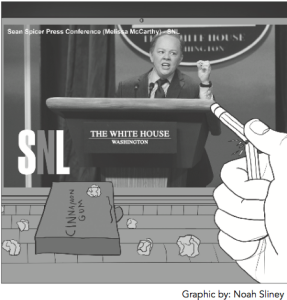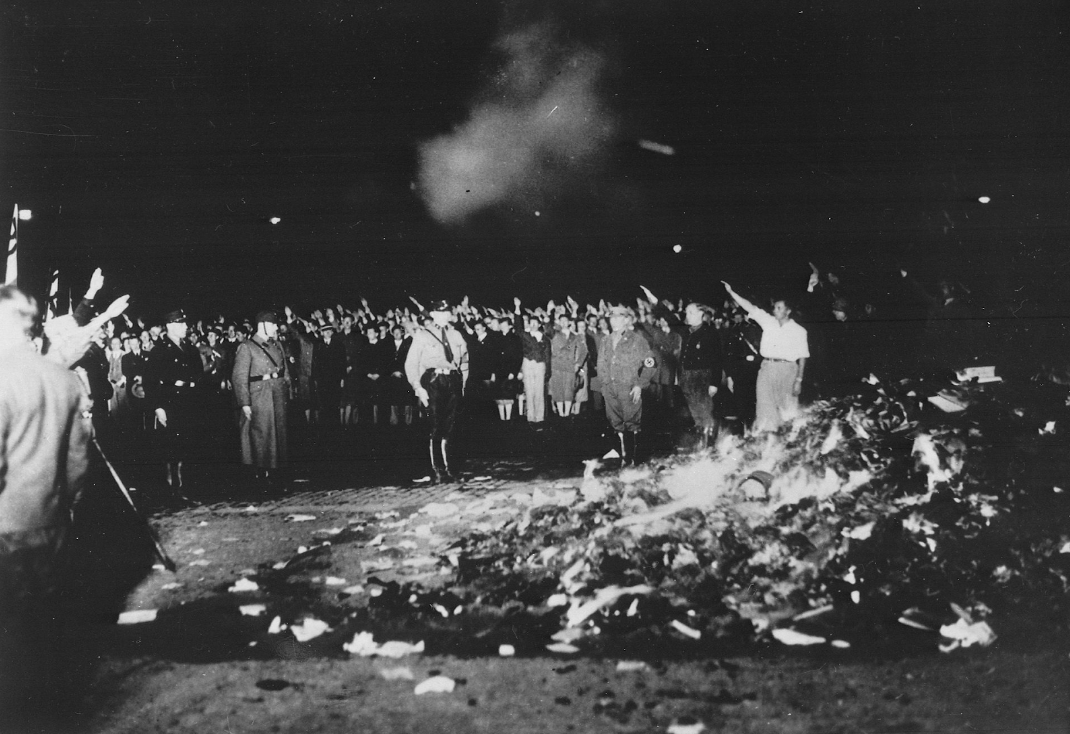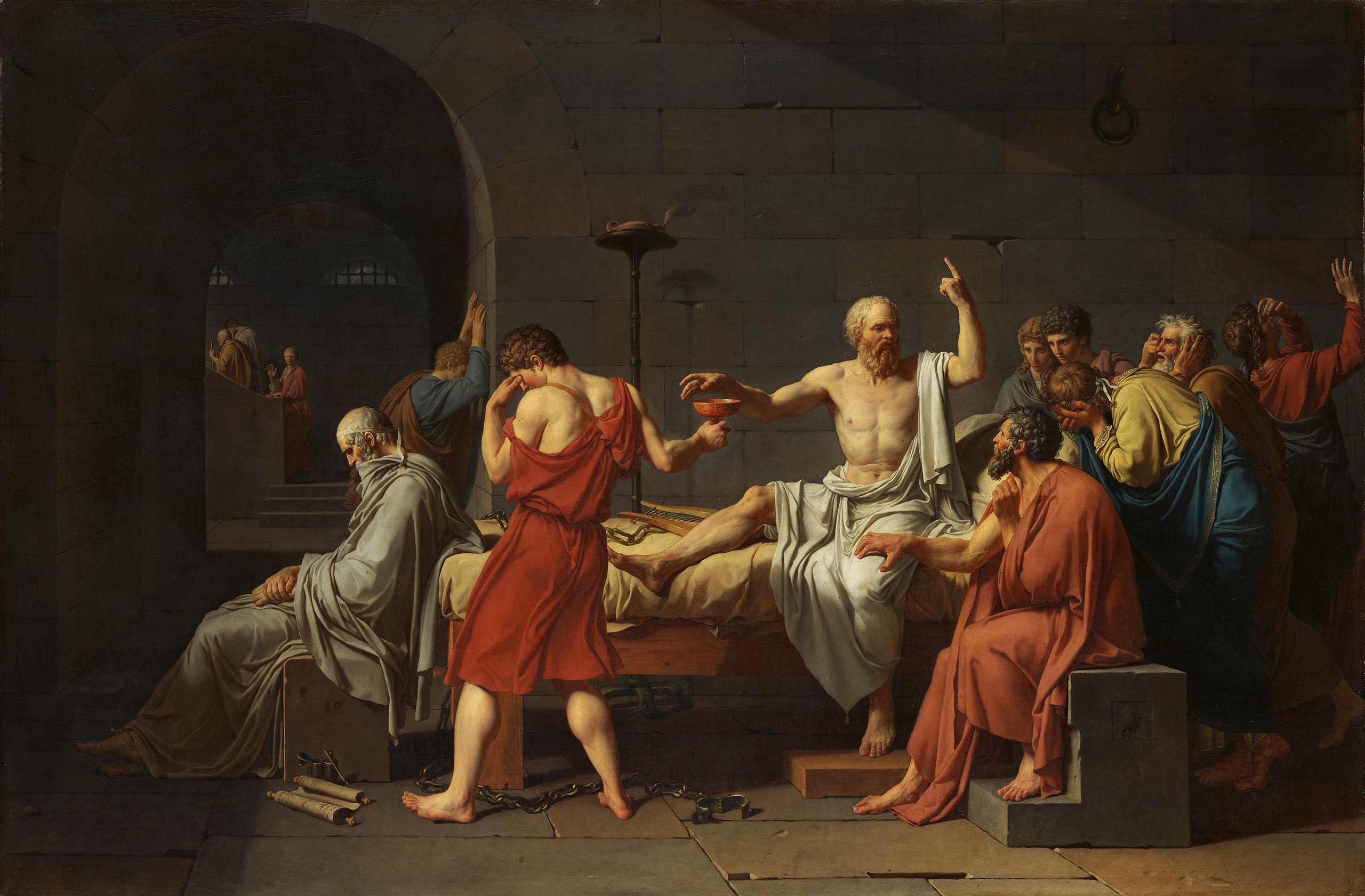Defense is being lost…
By: Katie Hayes
Editor-in-Chief
It’s not exactly a controversial statement to say Sean Spicer, the White House press secretary, had a rough start. During his first press conference, Spicer berated journalists, lied and said the inauguration crowd was the largest in U.S. history—during the same speech he said it was impossible to know the exact numbers—and left without taking questions.
Two weeks later, Melissa McCarthy did an impression of Spicer on Saturday Night Live that received widespread attention. In this impression, McCarthy yelled at the press, chewed an entire pack of Orbit cinnamon gum and said the immigration orde r was not a ban.
r was not a ban.
McCarthy’s impression was practically a modern-day “Modest Proposal.” Her impressions of Spicer showed him not only how ridiculous his behavior was, but how audiences perceived him after his first conference. While crass, her impression made a difference in Spicer’s behavior.
Since the impression of Spicer aired, he has been calmer in the White House press briefings. Although he rearranged the traditional seating for outlets—and gave preference to outlets the president does not consider “fake news”—Spicer seems less aggressive than his first press conference.
People pay attention when you make them laugh. Since Saturday Night Live has begun impersonating key players in our government, Americans are able to identify them—even if it is only to understand the references from SNL.
Political satire is not exactly an innovative concept, but interest in the genre has spiked in the last few years. John Oliver, Trevor Noah, Stephen Colbert, Seth Meyers are all television hosts who use satire to discuss politics with their audience. Jon Stewart—the father of these comedians-turned-television hosts—has also popped in periodically since he left “The Daily Show.” While the press is busy covering an exhausting amount of political activity from our current administration, comedians seem to be the only people defending them. When the entire media is discredited as “fake news”, who does that leave to defend them?
Political satire is most relevant when events and actions become so obviously ridiculous, that there is no other option to combat them. In the case of Spicer, the satire did what SNL intended for it to do: illustrate unacceptable conduct by the White House press secretary and make audiences laugh.










